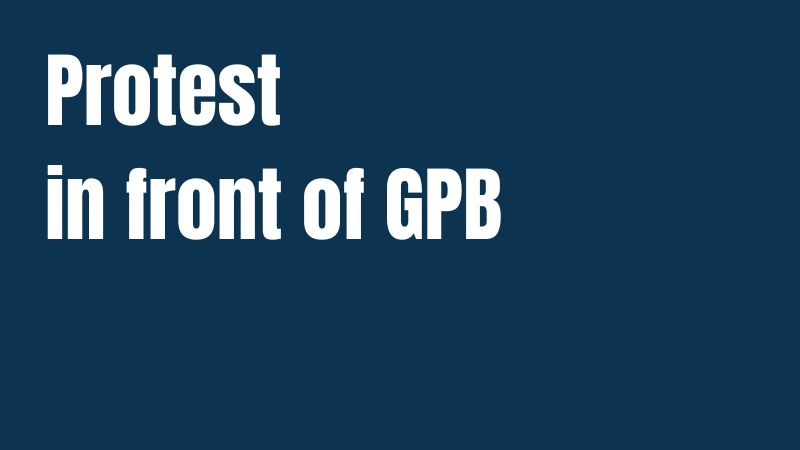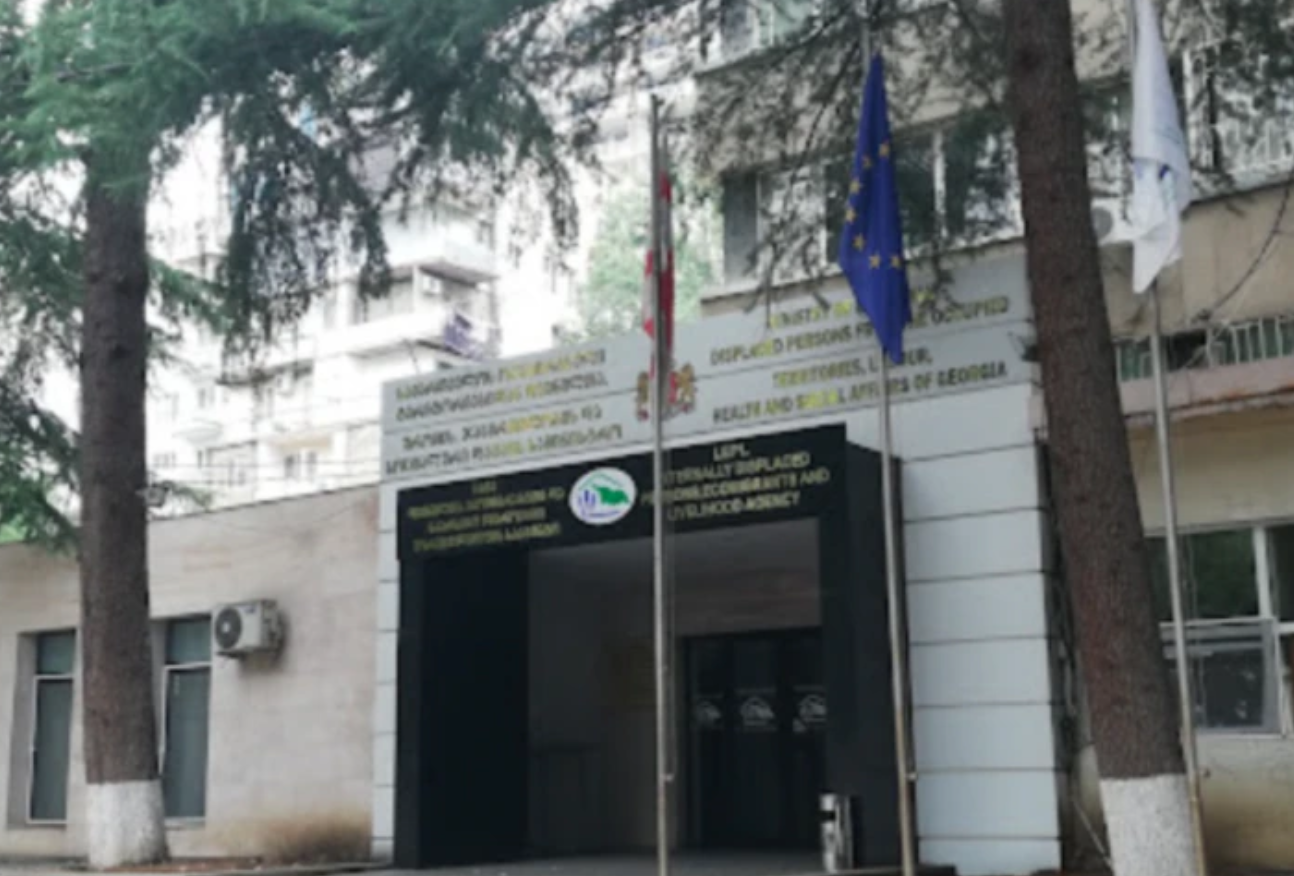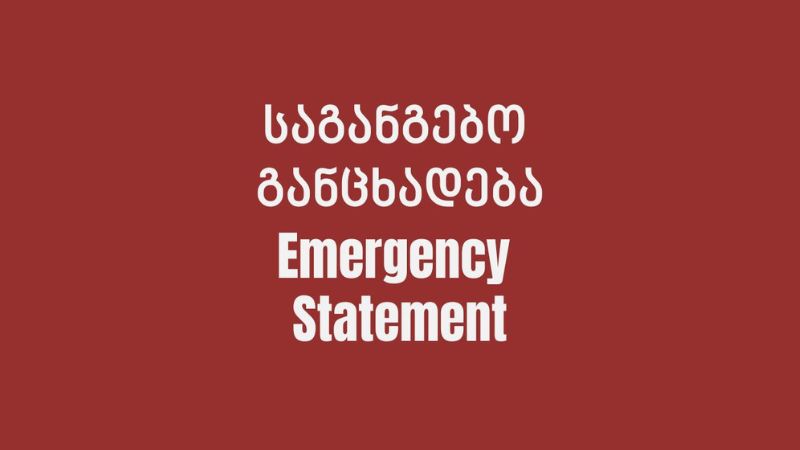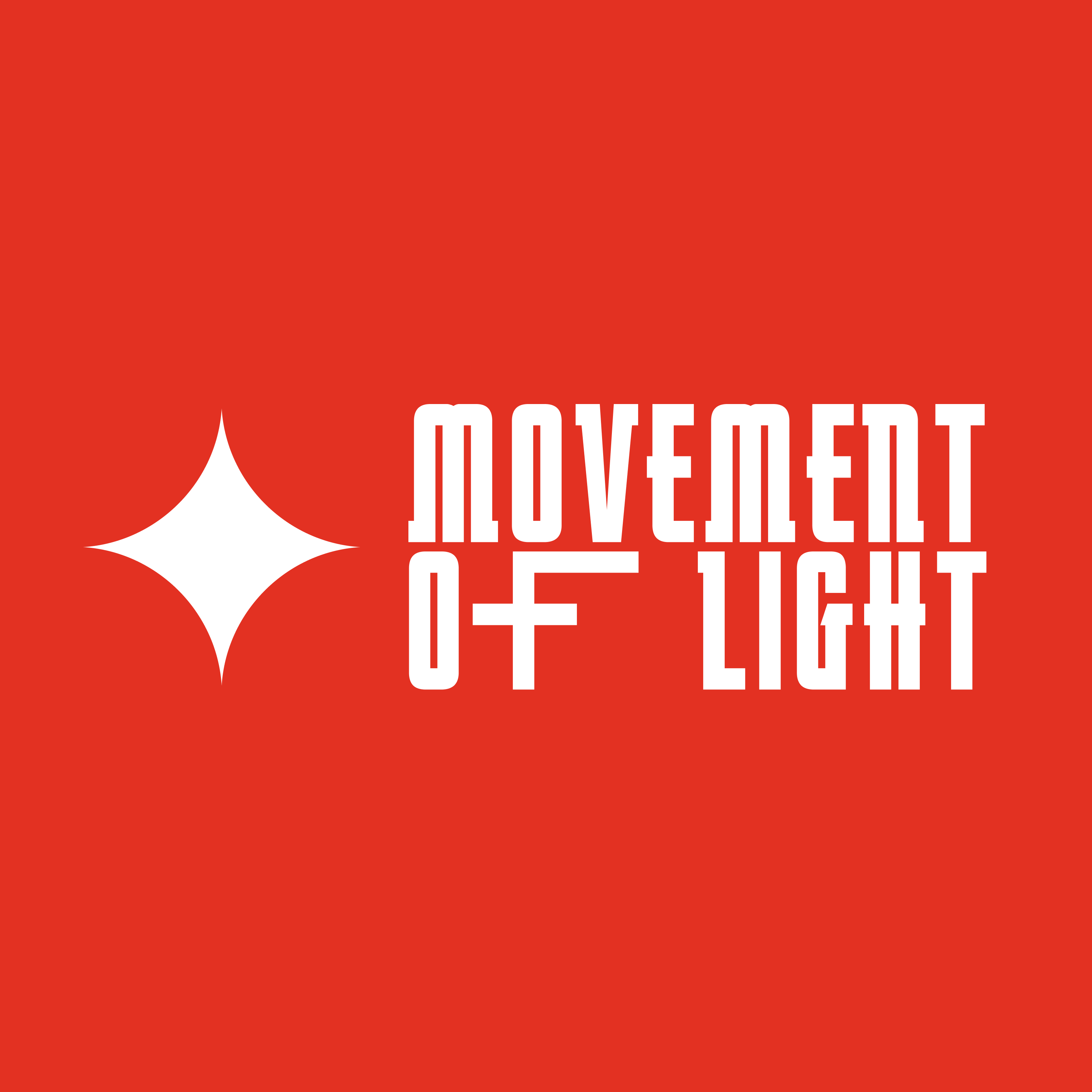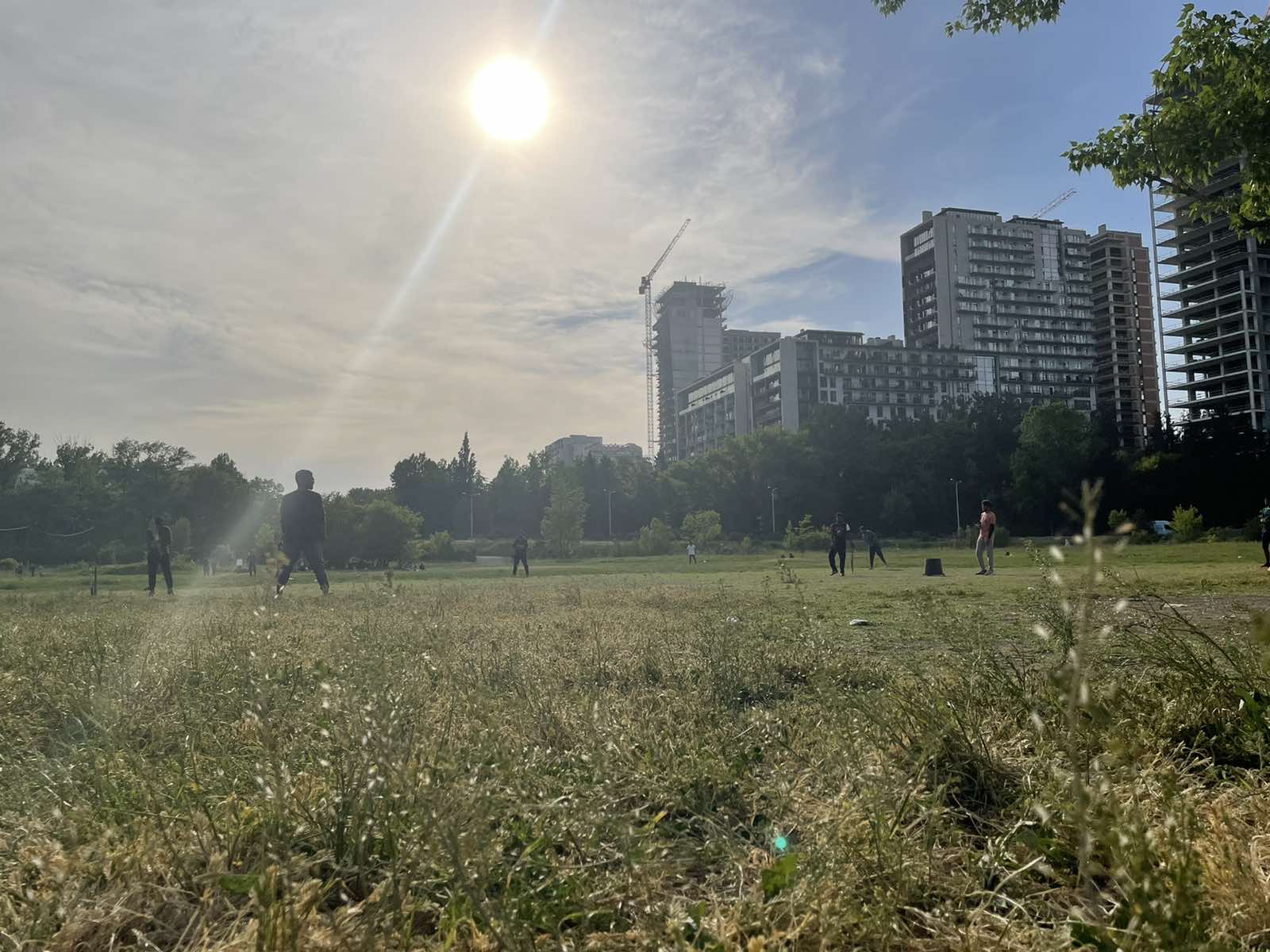On November 30th, on the third day of nationwide mass protests, citizens held a protest in front of the Public Broadcaster with three demands: allocation of public broadcaster’s live airtime to citizens, release of detained peaceful protest participants, and resignation of the public broadcaster’s leadership. Initially, by citizens’ request, the live broadcast was to be hosted by Real Space host Nino Zautashvili, however, later, the broadcaster’s General Director, Tinatin Berdzenishvili, decided to moderate the citizens’ live inclusion herself, as she said, because there were questions about the broadcaster itself.
“The main thing is to have closer communication with society, to be closer to society, and for these groups not to feel that they are completely omitted from your content. There are people standing outside who have been lobbying for the stories of Chiatura, Shukruti for so long and trying to make their voice heard by the Public Broadcaster – this is exactly why we pay this money. I don’t know if it’s much or little, but that it exceeds the entire advertising market and everyone’s combined… The main thing is that these groups don’t count on you, their voices aren’t heard on your air, and what we pay you money for isn’t being spent on that,” says Indigo’s director, Nata Dzvelishvili, live on air.
According to citizens connected to the broadcast, the Public Broadcaster isn’t fulfilling its duties imposed by the constitution and law, and despite its large budget, which is formed, among other things, from citizens’ taxes, it doesn’t fairly cover the protest and violence against peaceful citizens.
“You don’t have the dignity to protect the nation’s honor – to trust me {…} I have no one left beyond you. I have no one protecting me beyond you. I stand there with a hundred thousand {people} and still they tell me we are few, that we are insufficient apparently. Do you know what a good state is? When I stand alone, and my voice is heard across the whole country – that is a state. I couldn’t attain such a state in this country,” says a protest participant – Nino Laghidze, live on air.
The political freedom of Georgia’s Public Broadcaster is defined in Article 17, Paragraph 6 of Georgia’s Constitution: “The law ensures the independence of the Public Broadcaster from state agencies and freedom from political and substantial commercial influence.” At the same time,
Article 15 of the Broadcasting Law defines the broadcaster’s mission: “To provide society with programs that are free from political and commercial influence and in line with public interests, this law establishes one Public Broadcaster, which is a public law entity created for broadcasting based on state property in accordance with Georgian legislation, operating with public funding, independent from government and accountable to society, which is not subordinate to any state agency.”
According to Article 16 of the same law, the Public Broadcaster is obligated to ensure, among other things: editorial independence of programs, fairness and impartiality; freedom from governmental, political, religious and commercial influence; ensure public interest-based equality between news, socio-political, educational-cognitive, cultural and sports programs.
According to research by the “Human Rights Center,” the election process for the Public Broadcaster’s governing bodies – the Board of Trustees and General Director – is politicized and reflects the ruling party’s interests. The research mentions that over the years, the broadcaster has been characterized by editorial policy biased towards the government. One example cited is the 2022 allegations by some journalists about censorship at the broadcaster (the Public Defender’s Office “established substantial violation” in the case of journalists Imeda Darsalia, Sophia Zedelashvili, and Tamta Janadze, who were dismissed from the “First Channel” of the Public Broadcaster, and “requested their reinstatement”). According to them, the broadcaster tried to block stories about Russia and the Soviet Union. There was also a blacklist of respondents whom journalists were not supposed to invite.
According to the same research, the Public Broadcaster is the highest-earning among television stations with growing and guaranteed budget funding. As of 2023, its budget amounts to approximately 101 million lari – with the funding model changed at the end of 2023. However, according to various experts – including the European Broadcasting Union’s assessment, the broadcaster’s new funding model threatens its independence, as its dependence on state funding is growing.
A second citizen participating in the protest, connected live on air, states that the Public Broadcaster isn’t fulfilling its function and isn’t covering social problems:
“The Public Broadcaster lost its function long ago and massively spreads disinformation, lies, hatred, which then contributes to the processes happening outside. Yet, in reality, there are enormous social problems in society that you absolutely don’t serve. I am a teacher and I see, for example, hunger among students at school, I see huge social problems among students who don’t have student housing – and against the background of these social problems, when you broadcast this hatred, and are absolutely detached from reality – these people are fighting for their rights, for their right to voice, and for their social rights. Therefore, I want to say once again that it’s very important that we be here as people and reclaim our right, including the right to public broadcasting.” – says the teacher, Giorgi Chanturia.
Another protest participant tells about Public Broadcaster employees siding with citizens after the April 9 dispersal, despite the Soviet period:
“Why didn’t we go to another television station? Because the Public Broadcaster belongs to society. There are people living in regions who simply don’t know what’s happening and only have the ability to watch the Public Broadcaster – now my father’s footage is playing and I want them to turn up the sound – this is footage broadcast after the April 9 dispersal, this is the Soviet Union – in the Soviet Union people, Zaza Daraselidze, Nana Japaridze, Vakho Nanitashvili, Otar Shaoshadze, Keti Kapanadze, Tamriko Dekanoidze, Dodo Shonava, Guram Gorelishvili – dared, and in the Soviet Union, when they still didn’t know the Soviet Union was dissolving, they dared, came out and stood with the people. It’s my father’s voice – {he} says that we couldn’t lie to people. For us it was impossible to tell lies to people and that’s why we went outside and stood with the people and on these stairs in the 90s the whole television stood outside. Everyone had the feeling that this television was theirs, that this television was Georgian and that this television belonged to Georgia (…) Today people have the feeling that this channel doesn’t belong to them, while it’s funded with their money. Return it to us!”
Caucasus Open Space (COS) is publishing a statement, requesting to provide citizens access to live on Georgian Public Broadcaster (GPB).
The protest continues, information will be periodically updated in the next materials.
Giorgi Andghuladze
